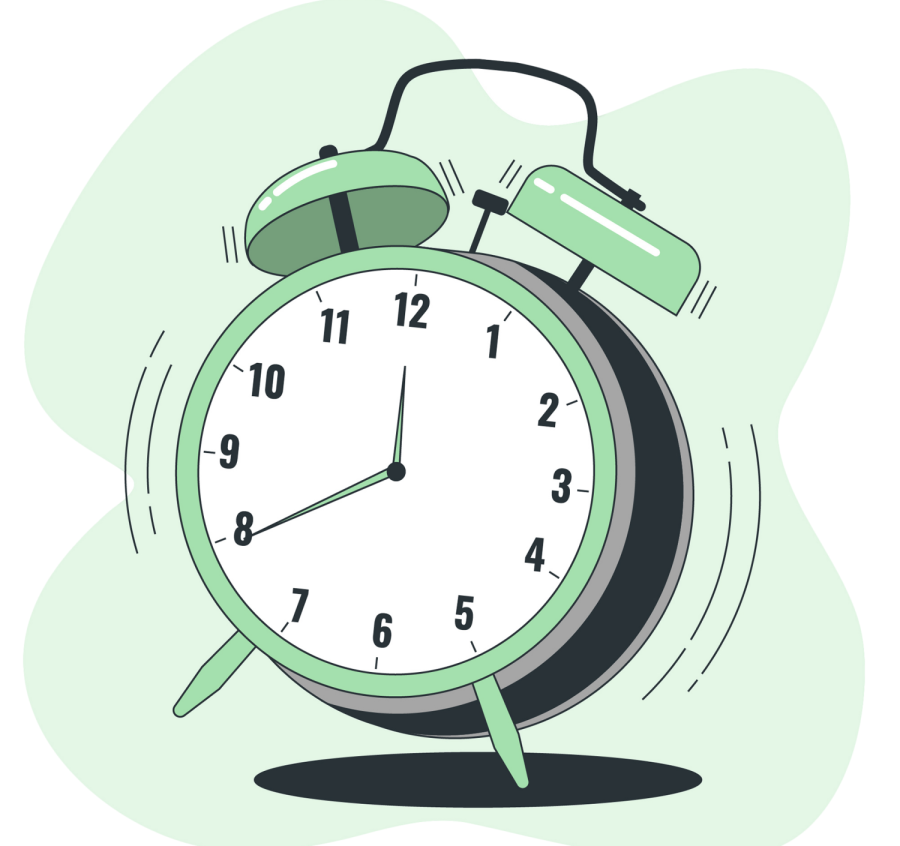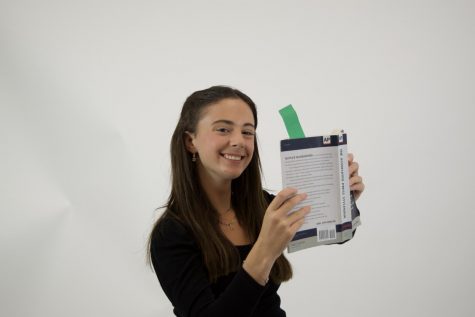Zero period: useless or under-utilized?
Students argue they need more sleep, which can be achieved by doing away with zero period.
December 6, 2022
Senior Joycie Brass’ Monday mornings start with a race from the track to the science lab. Cross Country practice ends at 7:15 am. By 7:45 am, zero period has begun.
Zero period, an extra class period once a week before school that is required for AP and honors science students, was created to make time for labs which take up class time. In theory, it is a perfect solution. But how useful do students find zero period to be in effect?
“There isn’t enough time to do anything very productive but cover a little bit of notes, so I sometimes feel that it’s a waste,” said senior and AP physics student Jack Lemon.
Zero period only lasts 40 minutes, leaving a small window of time to get work done. It is often used for teachers to sprinkle in extra notes and review; however, because of the small amount of time, it is difficult to cover a significant amount of material, which leaves students feeling like it is inconsequential.
In addition, the ratio of zero periods to labs is not balanced. Many weeks students have no lab but are still required to attend zero period, which defeats the original purpose of it. On weeks without labs, teachers should reconsider if zero period is necessary. If no time is lost due to labs, there should not be as much of a need for zero period.
Students also may benefit more from the extra sleep that is lost by zero period. Sleep is essential to retaining information. Retaining AP and honors-level material at any time of day is not easy, but doing so early in the morning makes things even more difficult for the students. In addition, in some cases, students receive assessments in zero period, which worsens the issue.
“Testing in zero period should not happen. Asking students to be that academically challenged that early in the morning is unfair of them and crosses a boundary,” Lemon said.
Dr. Sonia Clayton, science department chair, defended this, explaining that she believes students retain the information in zero period. However, she did mention that students seem more engaged on the 9:00 a.m. start days. Dr. Clayton compared zero period to G period, the class following lunch, which some students love and some students hate.
“Students get out whatever they put into zero period,” Dr. Clayton said.
Some AP and honors science classes need zero period more than others. For instance, for courses with less material, students feel that zero period is less effective and more of a time consumer. However, the necessity of zero period is more apparent for courses like AP Biology, which covers an immense amount of content.
“I think in bio, it would have been very difficult without zero [period]. It would have been unpleasant for us to fit that extra content into the class,” explained Brass.
Instead of uniformly requiring the extra class period for all AP and honors science classes, a possible solution could be only requiring zero for courses with the most material. Also, eliminating zero period for honors classes could be a solution since it doesn’t have a set curriculum that needs to be covered. Therefore, for honors classes, it is less consequential to cut extra material that doesn’t fit the typical class period.
However, Dr. Clayton explained that there is use in having zero period in honors classes because they feed into the AP classes. Honors classes must cover concepts that will be covered in AP. She worries that letting go of zero period for these honors classes poses the risk of causing the AP course load to become more crunched.
Another possible solution is to only have zero period every other week for honors and AP classes. Although possibly difficult to schedule, this would align more closely with the idea that zero period is meant to create space for labs, which occur roughly every other week in most honors and AP science courses.
Dr. Clayton encourages conversation between the students and teachers.
“Students need to have those conversations with their teachers and give them feedback over what is helpful and what is not,” Dr. Clayton explained.
If students want to see changes in zero period, the best way to start is by talking to their teachers if they feel their specific zero period is a waste of time or ineffective.













